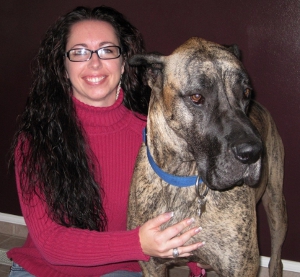
I am passionately committed to changing the future of companion animals by educating the public. Snickers loves kids. We visit schools together.
This is a question for anyone successfully involved in rescuing animals, regardless of animal type and whether working with a rescue group, with a shelter or independently. If someone asked you to give a speech or write a blog post or write a book about how to start doing what you do, plus some key […]

hi peeples, snickers here! this my second time to participate in my furriend cokie the cat’s anipal photo hunt. this week the subject is “my second job” meaning the job AFTER taking care of our peeples. after taking care of mom and girl, my job is helping educate people about responsible ownership of companion animals […]

Question: What do you think is the most significant change that companion animals – dogs in particular – bring to society and/or our individual lives? Answer from Cathleen Schine I think the most significant change that companion animals – dogs in particular – bring to our lives is, ironically, an expansion of our human interaction. […]

Question: What do you think is the most significant change that companion animals – dogs in particular – bring to society and/or our individual lives? Answer from Zennia Barahona The most significant change that companion animals – dogs in particular – bring to society and/or our individual lives is unconditional love. There truly is no […]

Question: What do you think is the most significant change that companion animals – dogs in particular – bring to society and/or our individual lives? Answer from Heather King The benefits that companion animals bring to us go far beyond the values and lessons learned from caring for the life of a living, breathing animal. […]
